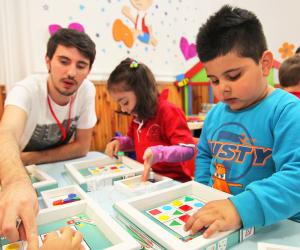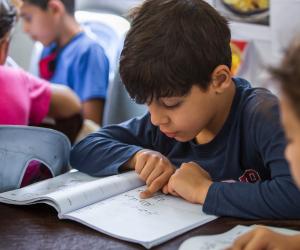
Pisa 2018: Exploring the Attitudes and Practices of Jordan’s Students and Schools Towards Reading
Executive Summary
This paper, developed as one of the background papers to inform Jordan’s National Literacy Strategy, explores data from the Organization for Economic Cooperation and Development’s (OECD) Program for International Student Assessment (PISA) for the year 2018, with a focus on reading literacy scores in Jordan. PISA defines reading literacy as “understanding, using, reflecting on and engaging with written texts, in order to achieve one’s goals, develop one’s knowledge and potential, and participate in society (OECD, 2012; p.1)”. This paper focuses on data around the reading activities and resources students are exposed to in Jordan as well as their attitudes and self-concept towards reading. The key findings of the analysis are highlighted below, categorized into findings at the school-level, classroom- and teacher-level, and student-level. In the executive summary, reference will be made to students and schools in Jordan, but it is important to note that this is specific to Jordan’s 15-year-old students and their schools.
School-level findings
The school-level data paints an overall positive picture of schools in Jordan, with policies in place to structure language learning, sufficient lesson time and the implementation of some extracurricular activities that can encourage language learning outside of the classroom.
Classroom-and teacher-level findings
Students seem to be learning in classrooms that are motivating and encouraging. Student reports suggest their teachers provide them with opportunities to express their opinions, give them feedback and adapt instruction to meet student needs. However, other practices may not be as conducive to learning, with the majority of students reporting limited practice in reading Arabic texts.
Student level findings
Student-level data was somewhat contradictory. Most students believed they were good readers and that they read fluently, but many also reported struggling with answering questions about texts. However, the data suggest that students have metacognitive abilities relating to some reading tasks, which is positive. Perceptions towards reading were also inconsistent, with many students agreeing that reading is one of their favorite subjects yet also agreeing that they only read to get the information they need. Additionally, a quarter of students reported never reading for enjoyment. Finally, the results in students’ ability to utilize technology for reading and writing were also somewhat contradictory.

